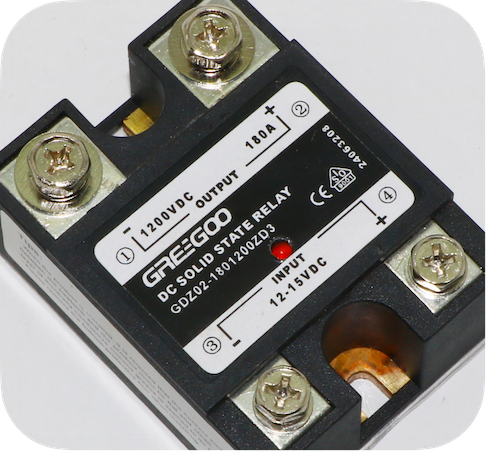DC solid state relay and DC contactor, which one is better?
DC Solid State Relays (DC SSR) and DC contactors are both switching devices used to control circuits, but they have significant differences in working principles, performance and application scenarios:
-
Working Principle:
- DC Solid State Relay (DC SSR): Uses semiconductor devices (such as thyristors, transistors, MOSFETs or IGBT) to achieve circuit switching. It has no mechanical moving parts.
- DC Contactor: Controls the circuit by driving mechanical contacts to open or close through an electromagnetic coil.
-
Performance:
- DC SSR:
- No Mechanical Wear: Due to the absence of mechanical parts, DC SSRs generally have a longer lifespan.
- Fast Response: Capable of switching circuits within milliseconds.
- Noise-Free: Operates silently as there is no mechanical action.
- Low Power Consumption: Requires less power for the control circuit.
- DC Contactor:
- Mechanical Wear: The lifespan may be limited by the wear of contacts due to mechanical movement.
- Slower Response: Compared to SSRs, contactors have a slower response time.
- Noise: Produces mechanical noise when switching.
- Higher Power Consumption: The electromagnetic coil requires more power to maintain contact closure.

- DC SSR:
-
Application Scenarios:
- DC SSR: Suitable for situations requiring fast switching, noise-free operation, and high-frequency switching, such as precision electronic equipment and automation control systems.
- DC Contactor: Suitable for handling high current and high voltage situations, such as electric vehicles and industrial motor control.
-
Cost:
- DC SSR: Generally more expensive than DC contactors, especially in high-current applications.
- DC Contactor: Typically lower cost, suitable for budget-constrained applications.
In summary, the choice between these devices depends on specific application requirements, including current and voltage demands, switching frequency, noise sensitivity, and budget considerations.

Fast Recovery Diode Modules vs. Standard Recovery Diode Modules: Which One to Choose?
Fast recovery diode modules are ideal for applications that require rapid switching and high efficiency, while standard diode modules are better suited for low-frequency and DC applications
Read More
Solid State Relay - Industrial Application - 60A to 500A @ 480V and 660VAC 4-32VDC
Solid State Relay - Industrial Application - 60A to 500A @ 480V and 660VAC 4-32VDC
Read More
Greegoo SCR Power Controller: The Ideal Choice for Industrial Applications
Three phase SCR power controller, phase shift thyristor regulator, IPM module 60A to 800A.
Read More
Gas-Filled Relays vs. Vacuum Relays: A Comparison and Application in High Voltage Switching Technology
the difference between gas filled relay and vacuum relay
Read More













